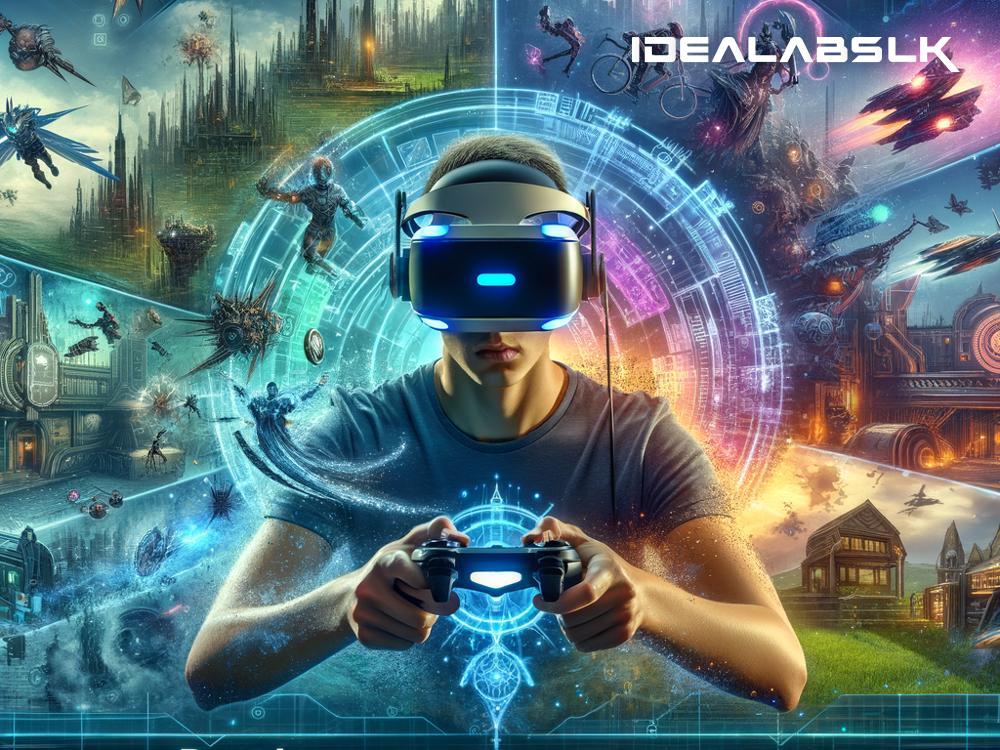How AI Will Personalize Game Experiences Based on Playstyle and Player Preferences in 2025
As we look ahead to 2025, the gaming industry stands on the brink of a thrilling revolution, with Artificial Intelligence (AI) at the heart of a seismic shift. Imagine booting up your favorite game and having it adapt itself to your unique playstyle and preferences. Sounds like science fiction, right? Well, not for long. In this blog post, we're going to explore how AI will transform gaming into a highly personalized experience, making every game you play feel like it was tailor-made just for you.
Understanding Your Unique Style
Every gamer is unique, with different preferences and playstyles. Some of us like to rush head-first into battle, while others prefer taking a stealthy approach, unraveling the story piece by piece. AI in 2025 will be sophisticated enough to understand these nuances in your playstyle. It will analyze how you interact with the game - your decisions, your movements, your successes, and your failures.
Using this data, AI can adjust game difficulty in real time. For instance, if you're breezing through enemies, the game might decide to throw tougher challenges your way, keeping you engaged and ensuring the difficulty feels just right. Conversely, if a boss fight has you stuck, the game could offer hints or subtly adjust to make the challenge more manageable, all without breaking immersion.
Tailoring Content to Your Preferences
Beyond adjusting difficulty, AI will go a step further by altering game content based on your preferences. Love puzzles? The AI will recognize this and introduce more puzzle elements into your playthrough. Prefer storytelling over combat? The game could dynamically adjust to focus more on narrative and character development.
This kind of AI-driven personalization means that two people playing the same game might have vastly different experiences, each tailored to their personal tastes. This offers incredible replay value, as you could play the same game multiple times with different focus areas each time.
Building Emotional Connections
One of the most exciting prospects is how AI will enhance the emotional depth of games. By understanding your emotional responses, AI can adjust storytelling elements, such as dialogue or music, to resonate more deeply with you, the player. Picture a tense moment in a game where the music changes based on how calm or stressed you seem, amplifying the emotional impact of the scene.
Enhancing Social Experiences
AI personalization isn’t just for single-player experiences. In multiplayer games, AI can help match you with players of similar skill levels or playstyles, making for more enjoyable and competitive matches. For those who love forming in-game communities, AI could suggest guilds or groups based on shared interests, making it easier to find like-minded players.
Respecting Privacy and Keeping the Magic
With all this talk of personalization, it’s natural to wonder about privacy. By 2025, developers will have to balance personalization with privacy, ensuring that player data is used responsibly and transparently. The goal is to enhance the gaming experience without making players feel uncomfortable or watched.
Moreover, there's a delicate balance to maintain between transforming the experience and keeping the game’s magic alive. Developers will have to ensure that AI personalization enhances the game without making it feel overly predictable or losing the challenge and discovery that make gaming so enjoyable.
The Future Is Personal
As we edge closer to 2025, the fusion of AI and gaming is set to redefine our expectations of interactive entertainment. By understanding and adapting to individual playstyles and preferences, games will become more engaging, emotionally resonant, and fun. This isn't just about making games easier or harder; it's about crafting experiences that feel deeply personal and immensely satisfying.
In this brave new world, every game has the potential to be your "perfect game," constantly evolving with you. As developers and gamers alike embrace this future, we're not just looking at an evolution of gaming but a revolution in how stories are told and experienced. The future of gaming in 2025 is not just personalized; it's profoundly human. And that's a future worth getting excited about.

